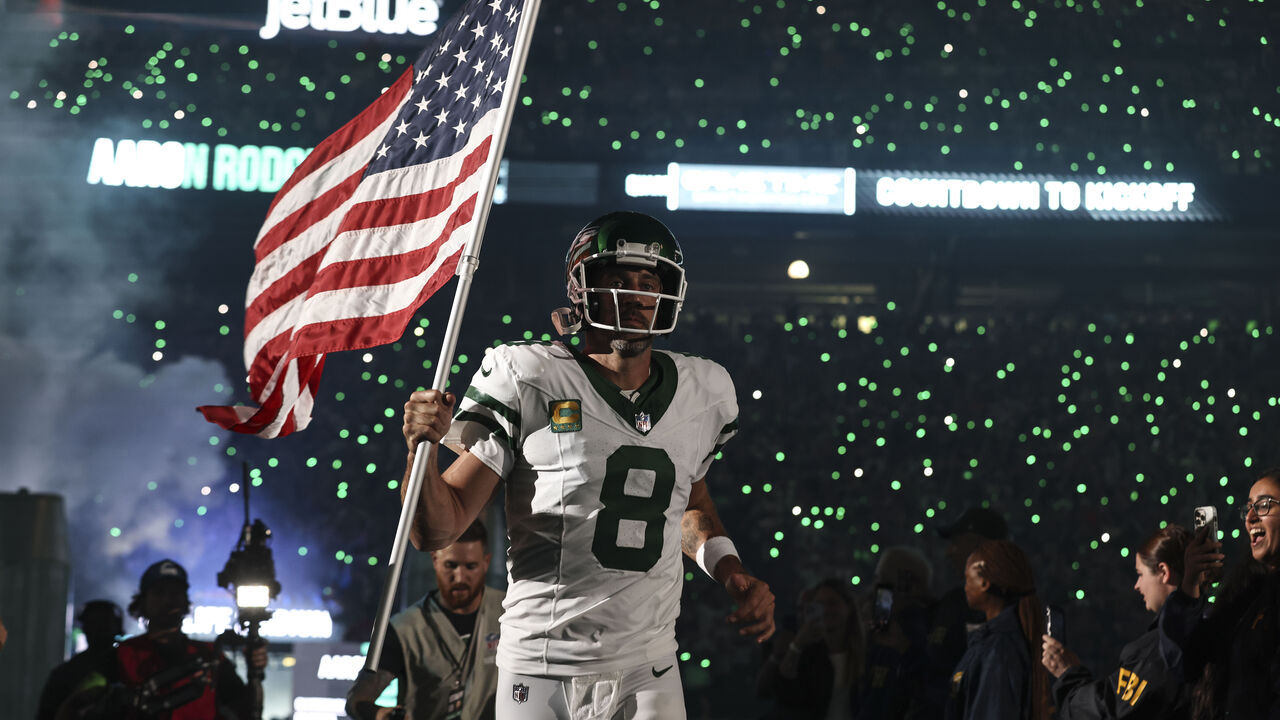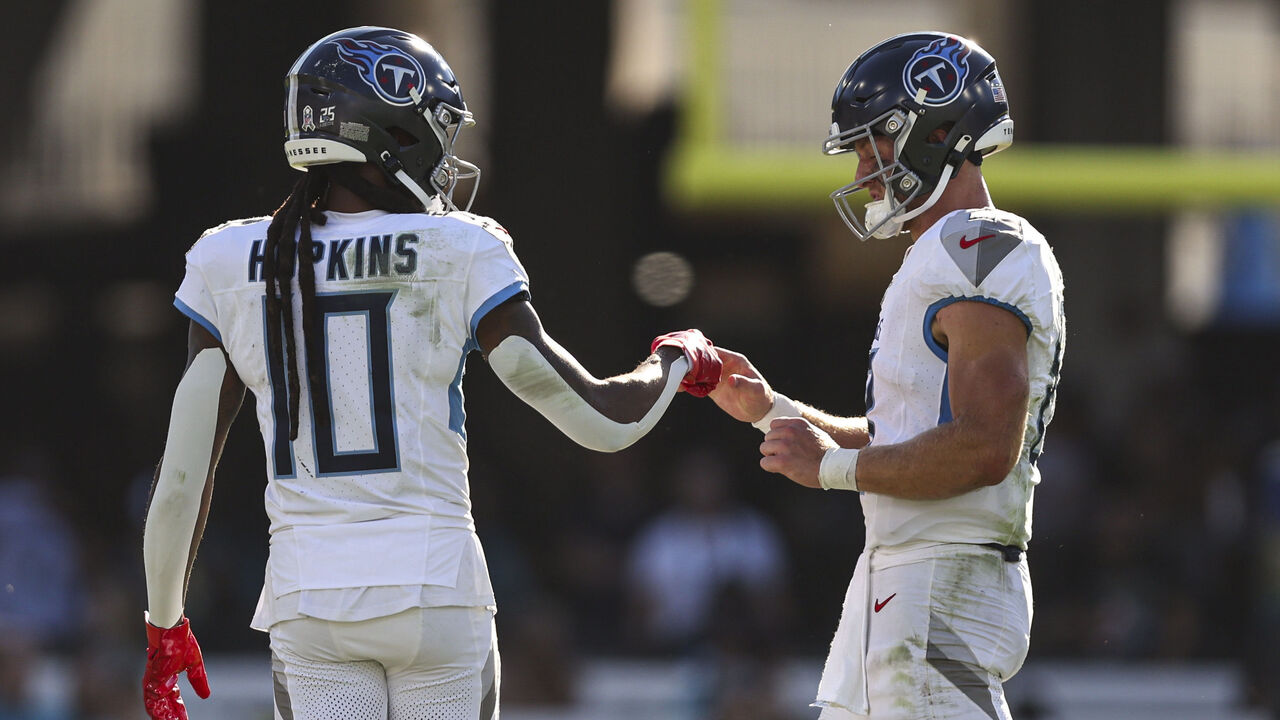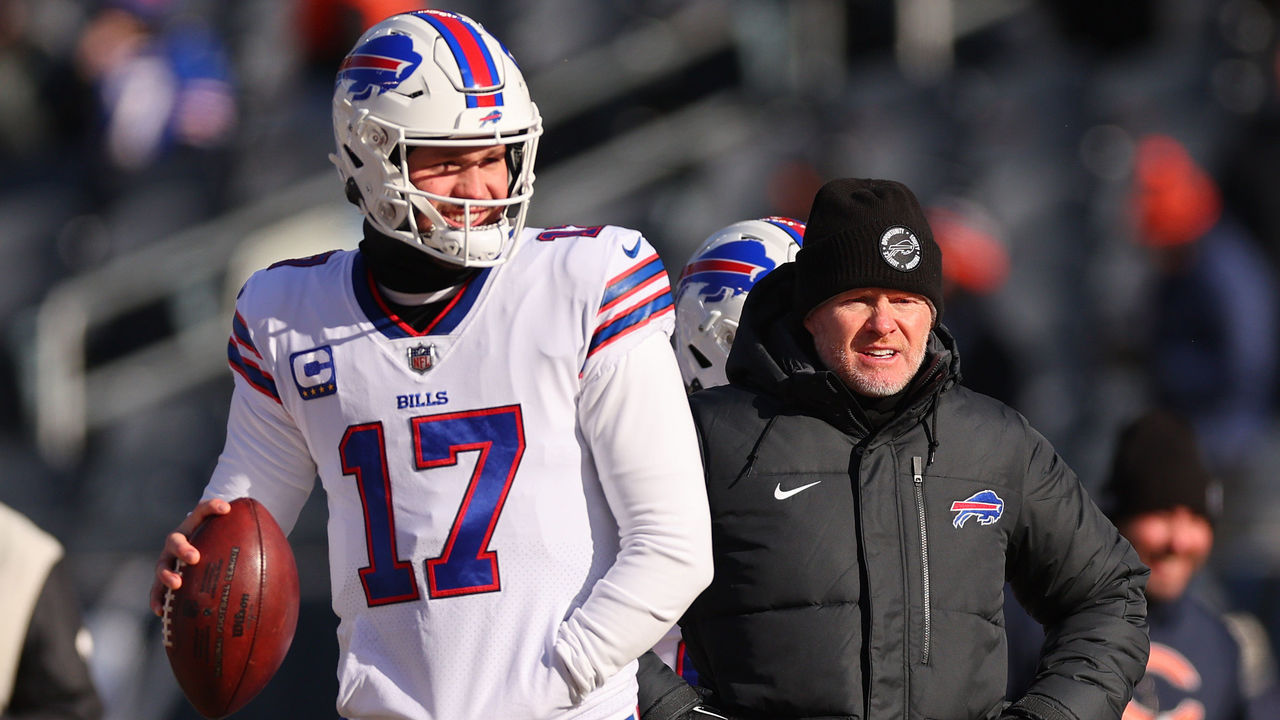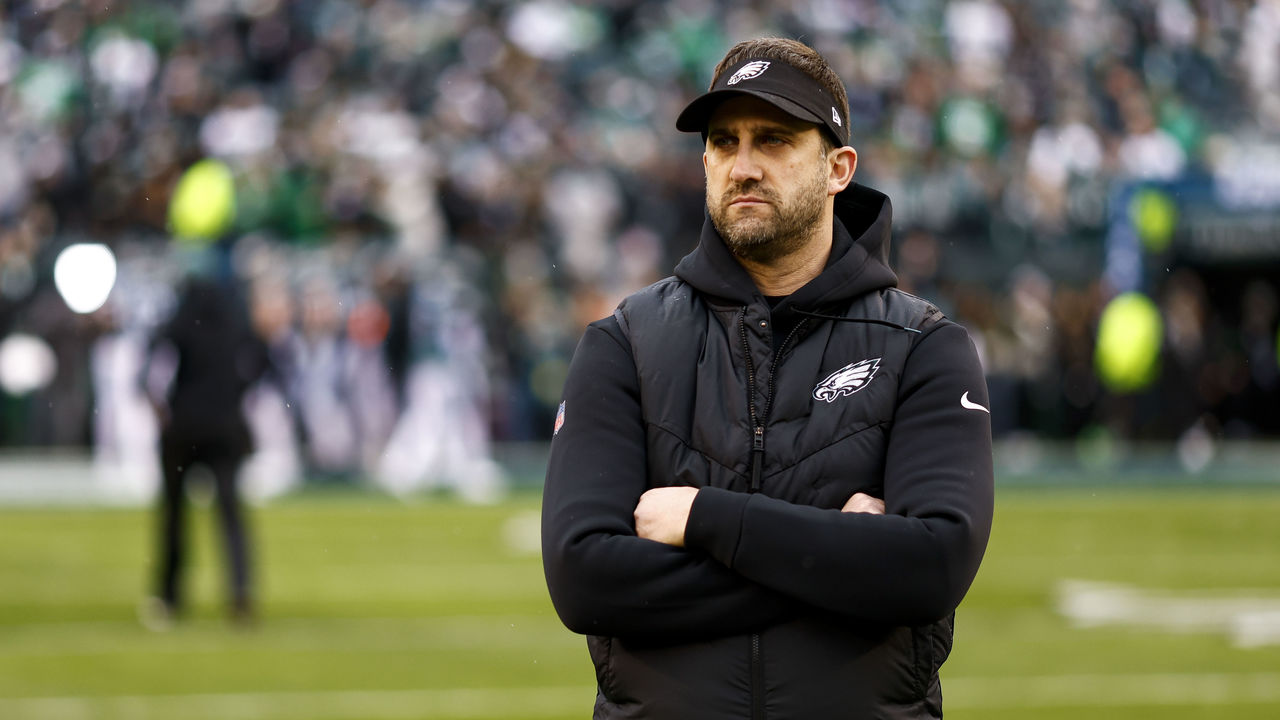


The Houston Texans and Detroit Lions showed in 2023 that turnover in the NFL playoffs is more common than many people think. Houston and Detroit ended postseason droughts – defined here as two years in a row or more missing the playoffs – and each won at least one matchup, eliminating strong contenders along the way. The Jacksonville Jaguars in 2022 and the Cincinnati Bengals in 2021 did the same.
Here we identify five teams that look like they’re ready to end their playoff droughts and five clubs that might not be able to return to the postseason after getting there during the 2023 campaign.
We won’t blame you if you don’t believe in the Jets. They haven’t made the playoffs since the 2010 season – the longest drought in the NFL – and always seem to find different ways to break their supporters’ hearts. That said, the Jets look very good (on paper). New York and its strong defensive unit posted a 7-10 record in each of the last two seasons despite big issues at quarterback, showing that the club is just a decent offense away from seriously competing for a playoff spot.
There’s reason to believe the Jets’ offense will be better in 2024. Two seasons removed from his most recent MVP year, Aaron Rodgers is healthy again after tearing his Achilles four snaps into his 2023 Jets debut. He’s surrounded by standout running back Breece Hall, two-time 1,000-yard receiver Garrett Wilson, and veteran wideout Mike Williams, whom N.Y. signed this offseason as one of the top pass-catchers available. Oh, and New York revamped its offensive line, adding three solid tackles (Tyron Smith, Morgan Moses, and rookie Olu Fashanu) and signing starting left guard John Simpson.
The Jets should have a chance to compete for the AFC East title – or at least fight for a wild-card spot.
The Falcons have won just one playoff game since their Super Bowl loss to the New England Patriots in February 2017. After missing the playoffs in six consecutive seasons, Atlanta has hired Raheem Morris to replace Arthur Smith as head coach. The Falcons are coming off three straight 7-10 campaigns, so it’s not unrealistic to expect a playoff appearance with Morris’ outfit returning its main 2023 starters and adding Kirk Cousins, this year’s top free-agent QB.
Cousins is surrounded by a group of skill-position players that features running back Bijan Robinson, tight end Kyle Pitts, and receiver Drake London, and he’s got a strong O-line led by All-Pro guard Chris Lindstrom. With a new QB1 in town, the offense should improve after ranking 26th in points in 2023. The Falcons also play in one of the league’s worst divisions and are projected to have an easy schedule. It’s possible – maybe even likely – that they return to the playoffs.
Few teams, if any, improved offensively as much as the Bears. They drafted quarterback Caleb Williams first overall and added Pro Bowl wideout Keenan Allen and top-10 pick Rome Odunze to a wide receiver depth chart that already featured DJ Moore. Williams was the draft’s consensus top prospect, boasting absurd potential thanks to his arm and his ability to make off-script plays. If he meets expectations, Chicago could become an NFC contender ahead of schedule.
The jury is still out on the Bears’ offensive line, and their defense remains a work in progress. But if Williams takes the NFL by storm in Year 1, he has enough talent to overcome some of the Bears’ roster issues and lift the team to the next level.
Tennessee struggled on both sides of the ball in 2023 and missed the playoffs for a second straight year after reaching the postseason three consecutive times from 2019-21. But the Titans made significant moves in 2024, hiring rookie head coach Brian Callahan and acquiring multiple starters to upgrade quarterback Will Levis’ supporting cast. Receivers Calvin Ridley and Tyler Boyd, running back Tony Pollard, and starting offensive linemen JC Latham and Lloyd Cushenberry give Levis explosive weapons and better protection. Defensively, trading for cornerback L’Jarius Sneed and signing corner Chidobe Awuzie should help the secondary.
The Titans will go as far as Levis can take them. He was named QB1 midway through his rookie campaign last year, and he showed flashes but lacked consistency. He’s now the full-time starter, and Callahan – a former offensive coordinator and QBs coach – is expected to help Levis elevate his game. Although the AFC is stacked, the South lacks many dominant defenses; the Texans are solid, but the Jaguars and Colts had evident issues last year. The new-look Titans may have a shot.

Indianapolis has a lot of talent on offense. The Colts struggled to find their next franchise quarterback after Andrew Luck retired in 2019 and haven’t made the playoffs since the 2020 campaign. But Indy drafted Anthony Richardson fourth overall last year, and although the dynamic signal-caller played just four games as a rookie due to injuries, he flashed his potential as a dual-threat playmaker with unreal arm strength. The Colts are hoping Richardson stays healthy to quarterback a promising unit that features a solid O-line, former All-Pro running back Jonathan Taylor, and 1,000-yard receiver Michael Pittman Jr., among other weapons.
However, Indy needs to improve defensively to return to the playoffs. First-round edge rusher Laiatu Latu was the club’s main acquisition on that side of the ball this offseason, but the Colts fared well at bringing back important players, including corner Kenny Moore II, defensive tackle Grover Stewart, and edge rusher Tyquan Lewis. The Colts’ schedule could be a boon: It’s the seventh-easiest slate based on projected win totals, according to Warren Sharp of Sharp Football Analysis.
The Bucs made the playoffs in each of the last four seasons and did a tremendous job of keeping their main free agents this past offseason. But don’t be surprised if they regress in 2024. Tampa Bay is 17-17 over the past two years, and it secured its two most recent postseason berths mostly due to the NFC South’s mediocrity. That situation could be changing, with the Falcons (as mentioned above) seemingly poised to improve after signing Cousins.
The Buccaneers brought some key starters back but didn’t really improve their roster. With Baker Mayfield, Chris Godwin, and Mike Evans (who turns 31 in August), this Bucs team may have already reached its ceiling offensively after making a divisional-round run last season. Tampa Bay’s defense also seems to lack the star power to compensate in the event the offense takes a step back.
The Josh Allen-led Bills have made the playoffs in five straight seasons, and the quarterback is coming off another campaign with 40-plus touchdowns. But will Allen’s brilliance alone be enough to keep Buffalo in playoff contention after losing key starters?

Gone are receivers Stefon Diggs and Gabe Davis, safeties Jordan Poyer and Micah Hyde, corner Tre’Davious White, and edge rusher Leonard Floyd, who led the team with 10.5 sacks in 2023. Can the 35-year-old Von Miller step up after finishing last season with zero sacks? Is a receiving group headlined by rookie Keon Coleman, Dalton Kincaid, Curtis Samuel, and Khalil Shakir good enough? General manager Brandon Beane recently preached patience with Coleman, who was projected to be a big part of this offense straight away.
Buffalo still has other established stars such as lineman Ed Oliver and linebacker Matt Milano. But this feels like the shakiest and most flawed supporting cast the Bills have assembled around Allen since he became a perennial MVP candidate.
The Browns made the playoffs in 2023 – their second postseason berth over the last four seasons – despite starting four different QBs due to injuries. They can thank Myles Garrett – the reigning Defensive Player of the Year and leader of an elite defense – and quarterback Joe Flacco, who signed in November and boosted the offense en route to winning the Comeback Player of the Year award. Flacco signed with the Colts this offseason.
All eyes are on Deshaun Watson again, leaving Cleveland with the same questions it had early last year. Watson – who’s got a $60-million-plus cap hit in each of the next three seasons – has disappointed (to put it nicely) in his 12 starts since coming over from Houston. Benching an expensive passer who’s under contract through the 2026 season doesn’t seem to be an option. Watson underwent shoulder surgery this year. He’s expected to be healthy again but hasn’t done much to show he can regain his Pro Bowl form. Why should we trust him now?
It’s hard to imagine Cleveland sustaining its playoff success without solid quarterback play while competing in the NFL’s toughest division and conference.
The Eagles exit this offseason as winners, but did they do enough to fix the roster issues that the 2023 season exposed? Philly opened last season on a 10-1 tear and then lost six of its final seven games, including a 32-9 wild-card defeat versus Tampa Bay. The Eagles ranked 14th in EPA/play from Weeks 13-18, a significant drop for a team that was top five in the season’s first three months. Coach Nick Sirianni’s offense just couldn’t right the ship – or accomplish much in the passing game – down the stretch.
Philadelphia’s since added OC Kellen Moore to the mix and signed Saquon Barkley. However, last season suggests the Eagles’ offense needs more than a solid running back to regain its strong 2022 form. Barkley has a long injury history, too. Meanwhile, Jason Kelce – the NFL’s best center and a franchise cornerstone – retired. Will the Eagles’ top-ranked O-line remain the same? Defensively, they’ve hired coordinator Vic Fangio, who could be a great fit but is coming off a disappointing season in Miami. Fangio and Co. brought in new defensive backs to fix their secondary, but the pass rush is an unknown quantity. The unproven Bryce Huff is likely the top candidate to replace Haason Reddick, a Pro Bowler who’s now on the Jets.
The Eagles have made the playoffs in three straight seasons and still boast one of the NFL’s strongest rosters on paper. But their revamped coaching staff comes with question marks, and Sirianni enters this campaign under a lot of pressure.

Pittsburgh reached the playoffs in 2023 for the third time over the last four years. But the team was the No. 7 seed twice in that span, including last season when it suffered a wild-card loss to Buffalo. With Mike Tomlin on the sideline, the Steelers’ defense should remain solid as long as the likes of T.J. Watt and Minkah Fitzpatrick stay healthy. The same can’t be said for the team’s offensive unit, though.
Once again, the Steelers have concerns at quarterback. Pittsburgh traded away Kenny Pickett and revamped its passer depth chart by acquiring Russell Wilson and Justin Fields. Signing Wilson to a one-year, $1.2-million deal and giving up a conditional sixth-round pick for Fields were low-risk, high-reward moves. But did the Steelers improve enough at the sport’s most important position to make noise in a strong AFC North and keep up inside the conference? Wilson – the presumptive starter – hasn’t been at his best in the last three seasons and just averaged 6.9 yards per pass attempt in Denver, the lowest mark of his career. Fields’ running ability stands out, but he still has major flaws as a passer.
The AFC North will also welcome a healthier Joe Burrow back to Cincinnati this year. If Pittsburgh doesn’t get significantly improved performance from Wilson or Fields, the team likely can’t compete in a conference that’s loaded with great QB talent.